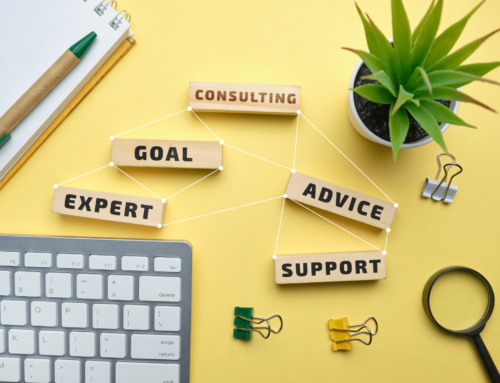Every day you show up to work at your nonprofit, you’re probably met with another obstacle. It’s no secret this sector requires hard work and copious amounts of your time. It’s all worth it to see the results in the end; however, it can grow tiresome. This past year showed us that self-care is vital to the success of any organization long term.
In fact, you could probably use a break right now. To keep trekking on tomorrow, you need to rest when your body calls for it. Self-care is always something you should prioritize to maintain stability and a positive mindset. It should be fun and allow you to relax for a little while.
Self-Care at Work
The workday can become hectic as soon as you walk in the door, so it’s important to schedule time for self-care. According to the American Institute of Stress, “83% of U.S. workers suffer from some form of stress.” There are small things you can do throughout the day to take a moment for yourself and reset.
- Take a Walk– Find a pretty park or even just a quiet street near your organization. You can take a stroll around your building every once in a while to take a break from your desk. Incorporating light exercise throughout your day can help relieve any tension.
It can also help to have a standing desk, which can reduce back pain and lower your chances of heart disease. Many people spend up to 8 hours a day at their computer, so it’s helpful to stand up for a portion of the day.
- Take a Lunch Break– Don’t forget to eat at some point during the day. This is a basic form of self-care that many people let slide. Properly fueling your body lets you put your best foot forward to your team. It also allows you to take a step away from the monotony of desk work.
- Control Notifications– The office space can be full of alerts. There are phones, computers, TVs, and other electronics that consume the area. Make sure alerts and notifications are either silenced or limited, so they don’t go off all day. This allows everyone to have a little peace and quiet when they need to focus.
- Set Boundaries– Many nonprofit organizations share communal space, and you might not have an office door you can close. It’s important to set boundaries for your coworkers. Maybe you’re in the middle of a budget report and it’s a major stressor. Put up a sign that asks for coworkers to respect a few hours of uninterrupted work. It’s important to carve out time so you can stay productive.
- Decorate Your Space– You can always make a space yours, even if you don’t have a large area to decorate. Bring in some plants or hang up some inspirational quotes. Invest in folders and storage containers to keep everything clean and organized. Making your space at work feel relaxing can help with your mental attitude throughout the day.
Self-Care on Your Day Off
Incorporating self-care routines on your day off ultimately affects your performance throughout the week. It’s important to create a realistic work-life balance. Be sure to stick to it throughout the week so you consistently have those rest days.
- Step Away from Work– This one may seem obvious, but many nonprofit workers carry their organization with them daily. While this shows passion, it can also become too much. Take some time over the weekend to fully detach and spend time with family or friends.
- Do Something Creative– Give your brain a chance to explore the left side. Although many nonprofits require a great deal of creativity, it’s beneficial to enjoy activities at a leisurely pace. Maybe you enjoy painting or writing poetry. Whatever it may be, take some time to pursue your other hobbies on the weekends.
- Do Nothing– Sometimes, you need a few hours to do nothing. Grab a spot on the couch and binge-watch your favorite tv show. Mindless activities can help you re-focus and reenergize. There seems to be an unnecessary shame associated with not being productive every second of every day. However, it’s impossible to keep up such a high pace without some downtime. Don’t feel guilty for taking some time for yourself.
- Treat Yourself to a Fun Day– You’re probably surrounded by people all week and could use some alone time. Take yourself shopping, to a museum, or just to grab a coffee down the street. It can be nice to be alone with your thoughts on quieter days.
- Organize– You can organize your closet, kitchen, or storage area that’s collecting dust. Sometimes this can be therapeutic and make you feel accomplished for the day. Tackle the project in small doses so it doesn’t end up becoming a stressor instead of relaxing.
Promoting Self-Care to Others
It’s important to promote self-care to the rest of your team members. Sometimes, people don’t even realize how much they need a break until someone brings it to their attention. Cultivate a culture of positive mental health practices, and it will only help your organization thrive.
- Train Staff on Communication Practices– It’s helpful to offer your staff resources on positive communication. This helps with the energy at work and ensures disputes are handled peacefully. Nurturing the company culture is a form of self-care in itself.
- Offer Flexibility– It’s no secret that remote work is growing increasingly popular. If possible, allow your staff to work from home on days they need to take the kids to school or just don’t have the time to commute. This also lets them know you trust their work ethic and value the time they put in.
- Offer Time Off– Most companies have a personal time policy, but what if you asked an employee if they wanted to take Friday off? It’s important to recognize when your staff is burnt out and allow them to decompress. Most people are far more productive after a few days off. Some companies even honor unlimited time off. This allows employees to take time for unexpected events or trips without feeling guilty.
- Team Building Activities– Team building allows your team to step away from the daily operations and connect on a more personal level. There are so many activities to choose from, including: a scavenger hunt, trivia, 2 truths and a lie, competing in sports brackets, doing an activity like mini golf, or grabbing lunch as a team.
- Bring in Counselors– You can bring in counseling services like an Employee Assistance Program (EAP). They can schedule time at your organization each week and meet with employees on an individual basis. This allows employees to present any concerns in a safe space.
Recognizing the Signs of Burnout
It’s helpful to stop burnout before it happens and recognize the signs in both yourself and others. This allows you to pause, take a breath, and implement the aforementioned self-care ideas. It’s important to pay attention to both the body and mind to recognize signs like:
Exhaustion
This can be in the form of mental and physical exhaustion. Maybe you find yourself hitting snooze more than usual. Or, maybe you don’t have the energy to socialize with your coworkers on your lunch break. This probably means you deplete all your energy at work and don’t have anything left to give. This is a major sign you need to take a day off.
Short Temper
If you find yourself lashing out or coworkers or family members when you get home it could be a sign you’re drained mentally. You might need some time alone to center your thoughts and just have some quiet time away from distractions. It’s hard to be surrounded by stimuli all the time, especially in the digital age we live in. Don’t be afraid to take some time away.
Anxiety/Depression
Burnout can manifest in a variety of mental health problems, but anxiety and depression are two of the most common. Anxiety can cause you to have panic attacks, phobias, or insomnia. Depression can cause loss of motivation and agitation. These mood disorders can be a sign that you have too much on your plate. Be sure to see a doctor or talk to a counselor to find an option that’s right for you.
Weakened Immunity
Do you find yourself constantly getting sick? This could mean your body is fighting to keep up with your heavy workload. Weakened immunity is not something to take lightly and you should look to pinpoint your stressors. Take some time off work to recover. Plus, no one wants to be around a sick coworker—they would rather you stay home instead.
Put it All Into Practice
Now that you know the signs of burnout and self-care tools to combat it, you should be well on your way to a less stressful lifestyle. Your organization needs you to be at the top of your game, but you can’t do that unless you take some time for yourself along the way. Allow yourself to take a break and admire the progress you’ve made thus far. You were probably so busy you didn’t even realize how far you’ve come.
Looking for more self-care strategies to stay at your best? Here are three simple changes you can make to improve your day-to-day.
By Kaitlin O’Dougherty





